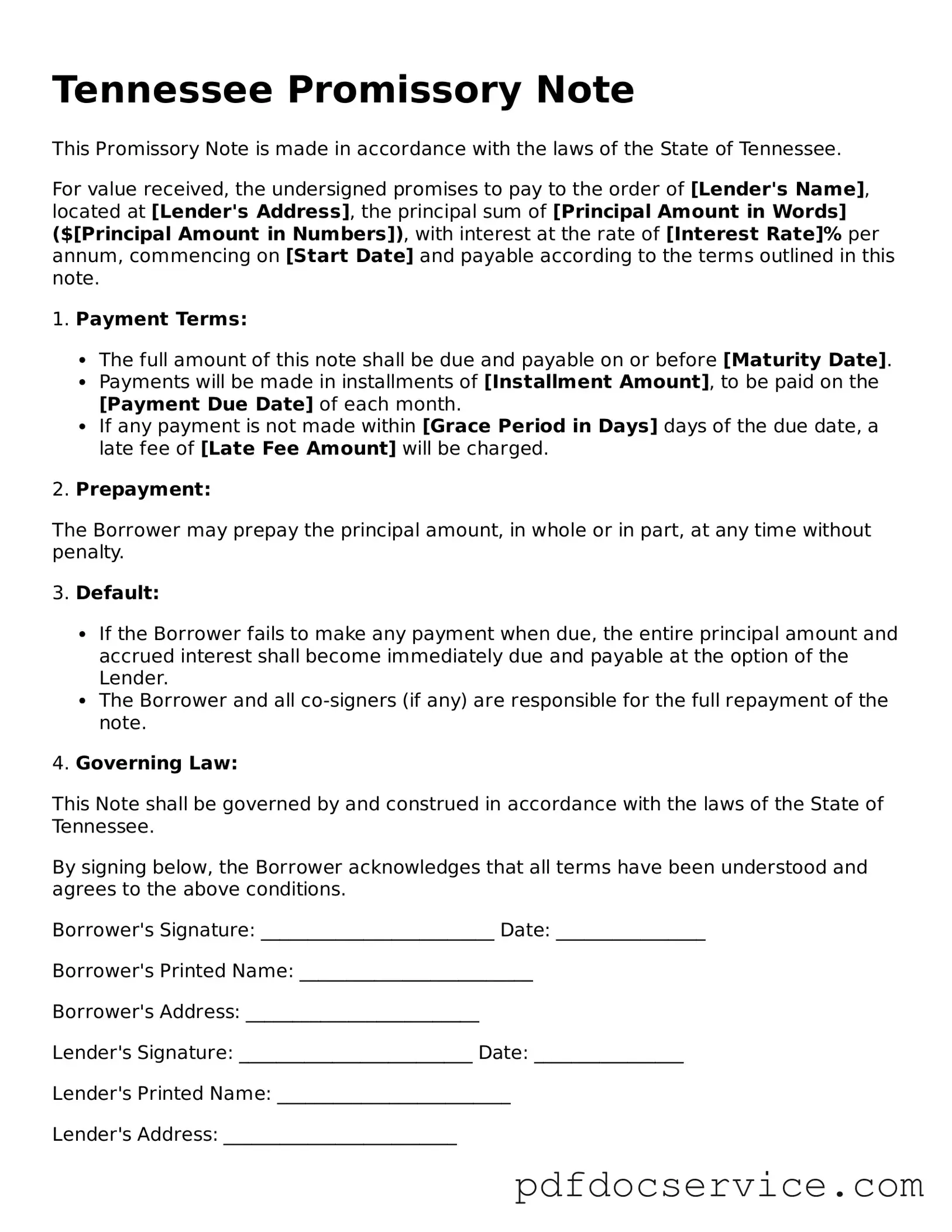Printable Promissory Note Template for Tennessee
A Tennessee Promissory Note is a legal document that outlines a borrower's promise to repay a specific amount of money to a lender under agreed-upon terms. This form serves as a written record of the loan agreement, detailing the repayment schedule and any interest involved. Understanding this document is crucial for both parties to ensure clarity and protect their rights.
Open Promissory Note Editor

Printable Promissory Note Template for Tennessee
Open Promissory Note Editor

Open Promissory Note Editor
or
Get Promissory Note PDF
Finish the form now and be done
Finish Promissory Note online using simple edit, save, and download steps.